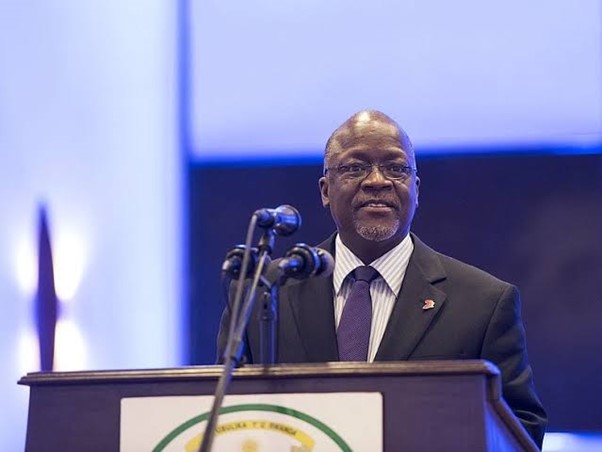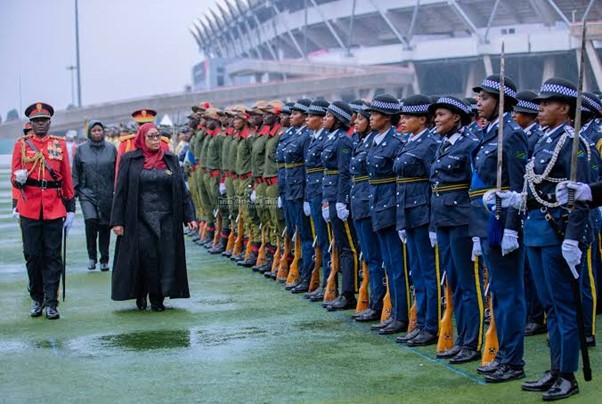Over the past several years, Tanzania has experienced a trend of political repression involving abductions, harassment, and even killings of innocent people, especially activists, opposition leaders, and any citizen showing signs of criticizing the government.
This trend was notably seen during the late President John Magufuli’s era and has continued under the leadership of President Samia Suluhu Hassan, despite her promise of reform under her 4Rs (Reconciliation, Resilience, Reforms, and Rebuilding).
READ: The 4Rs of Samia’s Presidency: A Future of Unfulfilled Promises?
This year alone, more than 200 cases of missing people have been reported, including the deaths of opposition party leaders and others being kidnapped and threatened. Disturbingly, the police and other security forces are highly suspected, creating fear among citizens and a sense of insecurity in their own country.
Historical Context
Tanzania has had a reputation for political stability compared to its neighbours, Uganda, Kenya, Burundi, Congo, and Rwanda. However, things began to change during Magufuli’s presidency.
Under his leadership, critical media outlets were shut down, and opposition parties, particularly CHADEMA (the main opposition party) and activists faced significant challenges, including imprisonment and a ban on opposition gatherings. Some individuals even feared for their lives.
A notable example is Tundu Lissu, a CHADEMA leader and former Member of Parliament, who was shot and nearly killed. Many believed Magufuli’s actions were part of a strategy to consolidate power and maintain control over the political atmosphere in the country.
READ RELATED: Why Do We See Abductions, Disappearances, And Killings of Government Critics in Tanzania Today?
Following his death in 2021, power was transferred to Samia Suluhu Hassan, vice president. Initially, her administration appeared promising, and many activists and political leaders seemed to support her, seemingly forgetting the pain, injuries, and harassment suffered during Magufuli’s administration. However, these incidents have started to resurface.

Recent High-Profile Cases
Recently, CHADEMA leader Mzee Ally Kibao was kidnapped in public by individuals suspected to be police officers. His body was later found with his face disfigured by acid.
Last month, a youth leader from CHADEMA, Deusdedith Soka, was kidnapped after being last seen in police custody. His disappearance shocked the nation and exemplified the fear surrounding political activism.
Similarly, Edgar Edson Mwakalebela, also known as Sativa, was kidnapped in June 2024 and later found abandoned in Katavi National Park after being tortured and shot.
ALSO, READ CCM and Chadema Trade Blame Amid Political Abductions and Violence in Tanzania
His case drew significant public attention, prompting President Samia Suluhu Hassan to contribute to his medical expenses. Other activists such as Boniface Jacob, Tito Magoti, Buyobe, and Martin Masese have also reported facing threats and intimidation due to their advocacy for human rights and criticism of the government, making them targets.
A Culture of Fear
Beyond the ongoing abductions, threats, harassment, violence, and arrests of opposition leaders and activists, these individuals continue to tell the truth and fight against these injustices bravely.
However, the real problem lies with the citizens and other public figures. Many Tanzanians remain silent to protect themselves and their families or secure opportunities from the government or ruling CCM party. This is because they have witnessed the consequences for those who raise their voices, such as being kidnapped, jailed, or killed.
The Tanzanian government has repeatedly denied involvement in these acts or failed to conduct investigations, raising public concerns. Although President Samia acknowledges these issues, no significant action has been taken to address the root causes of the ongoing political violence.
The abductions and political violence in Tanzania have begun to capture the attention of the international community. Organizations such as the United Nations have raised concerns about the human rights violations occurring in the country. They have called on the Tanzanian government to investigate these cases and ensure those citizens’ fundamental rights to freedom of expression, association, and assembly are respected.
A critical factor in the ongoing violence is the alleged involvement of police in abductions, torture, and extrajudicial killings. For instance, in the case of Edgar Mwakalebela (Sativa), who was kidnapped in June 2024, he recognized a police officer during his torture. He identified the place where the torture occurred as Ostabay Police Post. Days after his release from the
Hospital, human rights defenders, activists, and opposition political leaders circulated photos of his torture on social media.
The lack of accountability and professionalism within security forces has led them to act against their oath, causing the public to distrust law enforcement. As a result, citizens find it difficult to express their political opinions safely.
The ongoing abductions, violence, and threats against opposition figures and activists pose a significant threat to Tanzania’s democracy, particularly as local government elections approach this year, followed by the general election next year.
A few days ago, Tanzanian advocate Bob Chacha Wangwe filed a case to challenge the upcoming elections, stating that he did so to ensure a safe poll environment. The elections cannot be considered fair without a secure environment for opposition voices.
What Needs to Be Done?
This is a question every Tanzanian citizen must ask themselves. The abductions, violence, and threats happening today will impact every citizen, if not now, then in the future. It is time for independent investigations and those responsible to be held accountable.
Reforms are needed to ensure that the police and security forces are held accountable for their actions and that the judiciary operates independently of political influence.
Tanzania must ensure the safety and protection of its citizens, including journalists, activists, and political opponents. Additionally, the international community and regional bodies must continue to pressure the Tanzanian government to respect human rights and democratic principles. This will help alleviate citizens’ suffering and ensure a genuine democracy.
Conclusion
Although President Samia Suluhu Hassan has instituted leadership under her 4Rs, the ongoing abductions, political violence, and suppression of the people represent a serious challenge to her government and the country’s democratic future. On the other hand, the culture of fear that has taken root in Tanzania continues to stifle free expression and undermine democracy.
I call on domestic and international actors, activists, and public figures to unite. There is still hope for change. For the sake of Tanzania’s future, it is imperative that all the actors mentioned take action.

